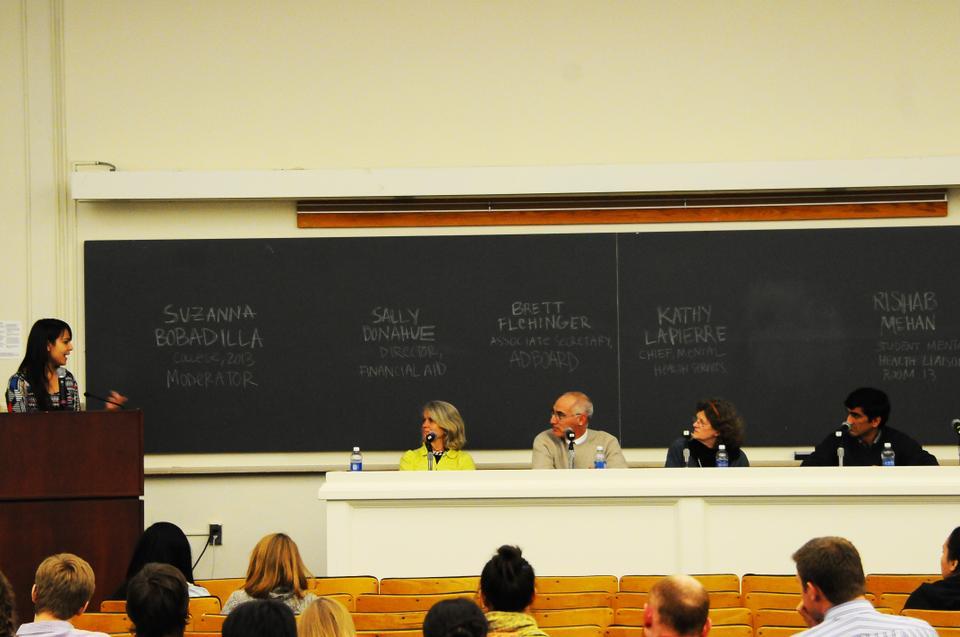
News
When Professors Speak Out, Some Students Stay Quiet. Can Harvard Keep Everyone Talking?

News
Allston Residents, Elected Officials Ask for More Benefits from Harvard’s 10-Year Plan

News
Nobel Laureate Claudia Goldin Warns of Federal Data Misuse at IOP Forum

News
Woman Rescued from Freezing Charles River, Transported to Hospital with Serious Injuries

News
Harvard Researchers Develop New Technology to Map Neural Connections
Panel Clarifies Mental Health Policies

University officials promoted existing mental health resources, clarified policies, and listened to student concerns in response to demands for an open dialogue on mental health at a panel discussion Thursday night.
The Undergraduate Council-sponsored event, which attracted more than 60 students and other Harvard affiliates, opened with questions seeking clarification on students’ rights within the mental health system.
Chief of Student Mental Health Services Katherine A. Lapierre assured students that records are confidential and only released to Resident Deans with a student’s written permission, except in cases of hospitalization. She further emphasized that despite rumors, students are never forced to take time off.
“We don’t involuntarily put people on leave,” she insisted. “There is no such thing as a ‘medical leave’ when people go on a leave of absence.”
Associate Secretary of the Administrative Board Brett Flehinger added that it would be illegal for the University to remove a student from campus for mental health reasons.
Lapierre said that although students returning from leaves are required to answer questions related to wellness, the intent is to ensure that students are able to handle the academic load.
During the open question session, one student relayed her friends’ personal experiences with Ad Board pressure.
She questioned whether students feel that they have a choice when Harvard gives a “strong recommendation” to take time off.
Other students offered their own suggestions for improving mental health care, including requiring all students to complete mandatory mental health check ups, creating a health class requirement for sophomores, and assigning all students to primary mental health physicians.
Lapierre said University Health Services looks for ways to improve its offerings and referenced several recent changes, including the hiring of new full-time access coordinators who schedule initial appointments, the doubling of outside appointments available to students on the Harvard health plan from 12 to 24 per academic year, and the hiring of additional full-time psychiatrists.
Thursday’s panel comes just over one week after a schizophrenic student’s anonymous Crimson op-ed accused the University of failing to provide adequate financial support for students facing emergency mental health expenses.
Sally C. Donahue, director of financial aid, told the crowd that her office encourages students facing unexpected medical expenses to drop in. She highlighted the Beneficiary Aid Program, which last year granted a total of $70,000 to more than 400 students facing unexpected costs.
UC President Tara Raghuveer ’14, who endorsed last week’s rally for mental health, said she felt “overwhelmed” by the level of conversation at Thursday’s panel.
“I’m amazed at the turnout,” she said. “We’re going to find a way to continue this dialogue in an inclusive way. Students should be able to talk about this issue on campus and get answers.”
—Staff writer Quinn D. Hatoff can be reached at quinnhatoff@college.harvard.edu. Follow him on Twitter @QuinnHatoff.
Want to keep up with breaking news? Subscribe to our email newsletter.
